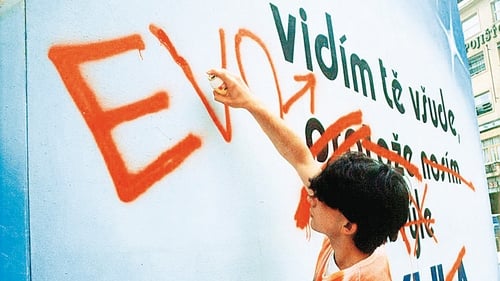Bad Joke 3 (2005)
Gênero : Comédia
Runtime : 1H 41M
Director : Zdeněk Troška
Sinopse
In Kamenákov, the arrival of a Romany family becomes a problem for police chief Pepa and ignites an intense soccer rivalry.

Risque jokes acted out in short skits.

Short Comedy skits of popular jokes. A continuation of the first movie.

The small group of actors have to face many problems while preparing a new performance.
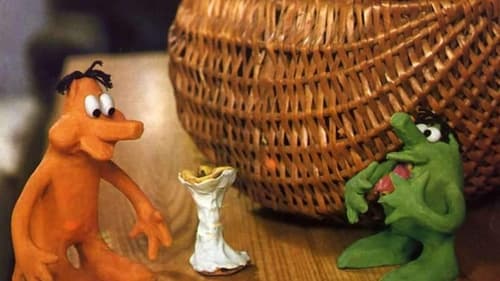
A second part of a funny adventures of six years old Lucie and her two magic dolls.

While on vacation with their bickering parents, young Eva and her little brother Johnny find in a polluted lake two strange friendly sentient octopuses made of strange material that attracts electricity. They take them as pets.
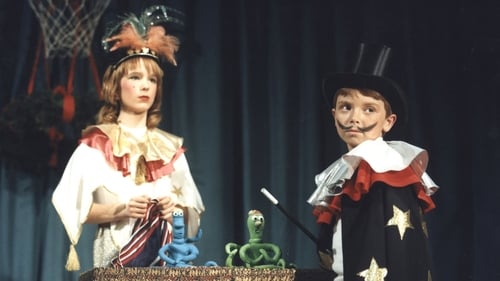
Eva and her younger brother Johnny own two sentient octopuses made out of strange matter. Will their parents divorce and ruin Christmas? Will a scientist find a way to use their pets as fuel? Live action film with stop-motion octopuses.
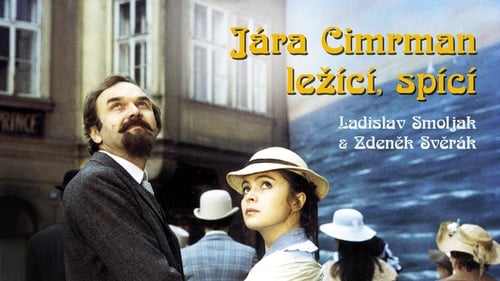
Czechoslovak comedy film directed by Ladislav Smoljak, about the fictional national hero Jára Cimrman (universal genius, inventor, sportsman, criminalist, poet, writer and philosopher).

La Création du Monde is among the first animated feature films made in France. But to be exact, the film was animated in Czechoslovakia and directed by Eduard Hofman. It is adapted from a series of five books by Jean Effel, a French caricaturist and illustrator. The visual style is adapted from his drawings. The film is a comedy about the creation of the universe in six days, with the devil messing around and contributing in his own way.

It's very human and nice story about lofty princess (her father is amiable but incapable - unforgettable performance of S. Neumann) and good, nice, kind and well-principled young king (prince) who tries to make tender her calm heart to get married with her. After being refused (she's very capricious), he conclude to make her better. He start to work as a gardener at her castle (in secret) and successively bring she to her senses...The story continues when already reformed princess and the young king (she learn about his real identity later) have to take refuge from troops, that princess father (old king) has sent (of course he took a bad and mean counsellors advice). They have to take shelter by several ordinary and poor families, which are always very friendly and give them a help... Of course the tale has happy end.

U pokladny stál... is a Czech comedy film. It was released in 1939.
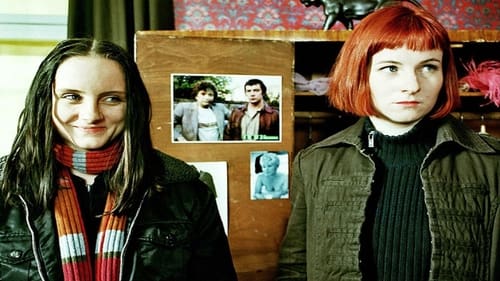
Jedna ruka netleska...

Good-natured and garrulous, Švejk becomes the Austrian army's most loyal Czech soldier when he is called up on the outbreak of World War I -- although his bumbling attempts to get to the front serve only to prevent him from reaching it. Playing cards and getting drunk, he uses all his cunning and genial subterfuge to deal with the police, clergy, and officers who chivy him toward battle.
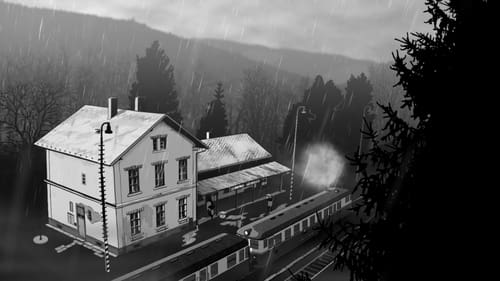
A train dispatcher encounters a mute stranger who appears out of nowhere, and finds himself mysteriously involved with a murder in Poland. The end of the eighties in the twentieth century. Alois Nebel works as a dispatcher at the small railway station in Bílý Potok, a remote village on the Czech–Polish border. He's a loner, who prefers old timetables to people, and he finds the loneliness of the station tranquil – except when the fog rolls in. Then he hallucinates, sees trains from the last hundred years pass through the station. They bring ghosts and shadows from the dark past of Central Europe. Alois can’t get rid of these nightmares and eventually ends up in sanatorium. In the sanatorium, he gets to know The Mute, a man carrying an old photograph who was arrested by the police after crossing the border. No one knows why he came to Bílý Potok or who he’s looking for, but it is his past that propels Alois on his journey…
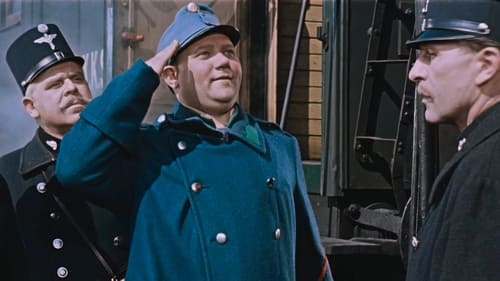
A comedy based on the novel of Jaroslav Hašek's The Good Soldier Svejk happens during the World War I. I Dutifully Report: In the introduction to the second part of the film adaptation of Hašek's novel The Good Soldier Švějk presents his main character Josef Švejk. With the distinctive traditional Czech cartoon character of a soldier Svejk, this time you meet on the way to the front and eventually right in the firing line. You can look at his famous train events, and also probably the most famous episode of the novel, Švejk's Budějovice anabasis. Don't miss the scene with the secretly bought cognac, the episode with Svejk as a fake Russian prisoner of war, including the court scene, and the scene in which lieutenant Dub is caught in a brothel. Despite the criticism, Steklý's adaptation is undoubtedly the most famous and memorable at present.

This movie is based on texts of Bohumil Hrabal, world-known Czech prosaic. It's a story (in a form of a mosaic of short episodes and pictures) about the sadness and happiness of inhabitants of Kersko (Kersko is a small woody area full of cottages and roods). These people are both simple and sensitive, they have their own pleasures (e.g. Leli is a collector of cheap, but inutile things) and the greatest delight of all of them is a hunting. Crude poetics of amateur hunting is screened by dreamy pictures of this area. Menzel mixes sentimental lyricism and rough (but not vulgar!) humor and the outcome is the never-ending landscape of continuous life in the proximate nearness of nature. The performances of actors are brilliant. Both Rudolf Hrusinsky as a Franz and Jaromír Hanzlik as a Leli have nonrecurring charm bottomed on a pain and inebriation. Only the music is not perfect: Jiri Sust usually assembled his film music from his older works and in this movie there is many quotations.
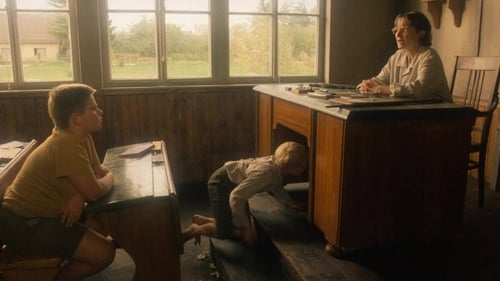
A época é 1945-46. Eda, de 10 anos, e seu amigo Tonda vivem em uma pequena vila nos arredores de Praga. Na escola, a turma é tão descontrolada e indisciplinada que o professor desiste e é substituído pelo militante Igor Hnidzo. Ele é muito rigoroso - mas também muito justo. Sua fraqueza é seu interesse pelas mulheres jovens. (e 14 - Estimado 14 Anos)

A selfish self-centered widowed ruler, barely tolerated by his subjects and called appropriately enough, 'King Myself, First' asks his three daughters to name the measure of their love for him. When one of them says, "more than salt", he banishes her from the kingdom. Not understanding what she meant the King assumes love can only be measured by precious metals or one's own talent, the 'correct' answers from his other two daughters. The arrogance of the King leads him to gather all the salt in the kingdom and destroy it. Of course, this backfires as he slowly learns the universal value of the substance, and of course, the essence of his daughter's reply. With the help of the wise and magical old 'herb woman', the King also learns what it means to be a true and wise ruler.
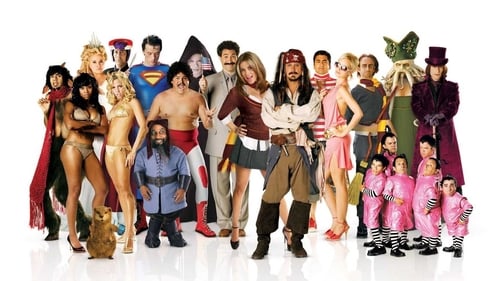
Quatro adultos órfãos vivem uma aventura incrível em filmes de fantasias. Eles visitam um grotesco confeiteiro em uma fábrica de chocolate e entram em um reino mistico, no qual eles devem ajudar um sábio e vigoroso leão a se livrar da terra de uma feiticeira.









